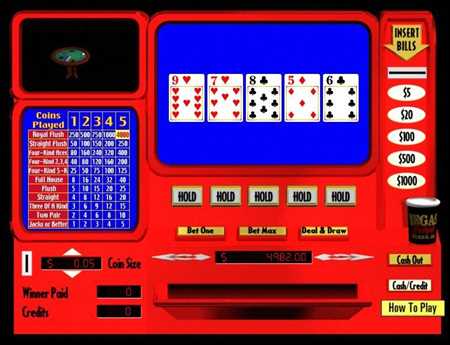

Engaging in competitive card games can be a thrilling experience that not only tests one’s skills but also offers immense potential for substantial returns. Mastering the nuances of gameplay is crucial for anyone aiming to elevate their standing in such a dynamic environment. The excitement of strategizing, anticipating opponents’ moves, and making calculated decisions all contribute to the allure of this fascinating pastime.
Among various formats of the game, certain strategies stand out, enabling players to significantly enhance their chances of success. By understanding the mechanics and intricacies of the game, participants can navigate through the challenges with confidence and clarity. This combination of knowledge and experience lays the groundwork for unexpected rewards, making each session an adventure.
Players are often presented with unique opportunities to multiply their rewards, creating a compelling reason to engage more deeply with the gameplay. By honing specific skills and utilizing strategic thinking, one can position themselves effectively to capitalize on these advantageous moments. Embracing this approach not only heightens the excitement but also elevates the overall gaming experience.
In the realm of card games, mastering strategy and technique is essential for achieving remarkable success. Engaging in this skill-based endeavor requires a blend of psychological insight and mathematical prowess, allowing players to capitalize on the intricacies of competition. By understanding the various elements of gameplay, one can navigate the table with confidence and poise.
Comprehending the Rules is fundamental. Familiarity with the game mechanics allows participants to make informed decisions. Each round presents opportunities to evaluate one’s hand and assess the actions of opponents, highlighting the importance of critical thinking and adaptability.
Furthermore, reading opponents can significantly influence outcomes. Observing behavior such as betting patterns, facial expressions, and body language can provide invaluable insights into the strength of their hands. Developing this skill can turn the tide in favor of the vigilant player.
Additionally, utilizing effective bankroll management is crucial. Setting limits and knowing when to walk away safeguards against impulsive choices that may lead to losses. This discipline ensures a sustainable approach to gameplay, allowing time to refine skills and strategies.
In conclusion, success in this card game hinges on a combination of strategic understanding, psychological acuity, and financial discipline. By honing these aspects, players can navigate the challenges of competition and aim for outstanding accomplishments on the felt.
Mastery over card games relies on more than mere luck; it demands a blend of tactics, psychological insight, and game awareness. Players can enhance their potential for significant returns by employing sophisticated approaches that consider various aspects of gameplay. Below are some methods to elevate your game and increase your rewards.
Incorporating these tactics creates a strong framework for gaming success. In addition, attention to behavioral patterns of opponents can yield further insights:
By blending solid fundamentals with keen observation and adaptation, one can significantly enhance their earning potential at the card table. Stay disciplined, maintain focus, and remain open to refining your strategies for continued improvement.
In the realm of competitive card games, deception often holds significant value. Mastering the art of misleading opponents can lead to advantageous scenarios, where the perception of strength can sway decisions and alter the course of a hand. This section delves into various methods to execute successful deceptions and gain an upper hand in play.
Know Your Opponents: Understanding the tendencies of your adversaries is crucial. Some players may be more prone to fold under pressure, while others might call your bets regardless of the hand they hold. Assessing their behavior and adjusting your strategy accordingly can enhance the effectiveness of your tactics.
Timing is Key: The moment you decide to implement a facade can greatly impact its success. By choosing optimal moments–such as when the board texture changes or after a series of conservative plays–you can enhance the believability of your representation. A well-timed ruse can cause even the strongest hands to falter.
Consistent Betting Patterns: Establishing a reliable betting routine can create a sense of normalcy in your approach. When you do decide to employ a trick, maintaining consistency in your bets up until that point can heighten the surprise element. Opponents may be less likely to suspect any trickery if your actions have been predictable.
Body Language Matters: Non-verbal cues can often betray your intentions. Be mindful of your demeanor and ensure that your physical signals align with the narrative you wish to present. Controlling your expressions and posture can make your play more convincing and decrease the likelihood of detection.
Vary Your Approach: Repetition can lead to predictability. If you consistently utilize the same strategies, opponents will catch on quickly. By mixing up your techniques, including both bluffing and genuine strong hands, you can keep your adversaries guessing and unsure of your real strength.
In conclusion, mastering deceptive strategies is an essential aspect of achieving success in card games. By employing thoughtful techniques, players can navigate through challenges and seize opportunities that arise from uncertainty. Remember, the skill of what is not shown can often be just as powerful as the hand that is revealed.
The significance of positional strategy in card games cannot be overstated. It influences decision-making, affects the control over the action, and ultimately impacts the outcome of the play. Understanding where one sits at the table relative to others is crucial for developing a coherent strategy and maximizing potential advantages.
Your location in relation to the dealer and your opponents shapes the range of hands you might choose to play. Players in early positions must adopt a more selective approach, while those who act later can exploit the actions of others to inform their choices. This dynamic highlights the importance of adapting your game based on your placement.
Effective financial control is critical for players looking to succeed in competitive card games. Managing your resources wisely can significantly enhance your experience and longevity at the tables. Here are several strategies to help you maintain a healthy balance and ensure sustainable gameplay.
By adhering to these tips, you not only protect your financial resources but also enhance your overall enjoyment of the game. A disciplined approach to your funds can lead to greater satisfaction and ultimately, a more successful experience at the tables.
Establishing clear boundaries for both gains and losses is essential for maintaining control while participating in games of chance. These parameters help players manage their bankroll effectively and minimize emotional decision-making during gameplay. By setting these thresholds, participants can enjoy a more enjoyable experience without the stress that comes from unexpected outcomes.
To begin, it is crucial to determine an acceptable figure for profits. This number should reflect a balance between ambition and realism, allowing the player to leave the table satisfied after achieving their desired outcome. On the flip side, defining a loss limit is equally important, as it prevents excessive financial commitment and helps protect one’s bankroll from significant depletion. Both limits should be adhered to strictly to foster responsible gaming habits.
Regularly reviewing and adjusting these boundaries based on experience and outcomes can lead to a more strategic approach. As players become more familiar with their personal tendencies, they may find it beneficial to modify their limits accordingly, striking a balance between enjoyment and fiscal responsibility in their gaming endeavors.
Selecting appropriate limits is crucial for a successful gaming experience. Understanding your financial capacity, skill level, and risk tolerance will allow you to make informed decisions. This choice not only impacts your potential gains but also shapes the overall atmosphere of the game.
Assessing Your Bankroll is the first step in determining the stakes you should engage in. Take a careful look at your available funds and decide how much you are willing to risk. It’s advisable to avoid exceeding a small fraction of your total bankroll in any single session, ensuring longevity in your gameplay.
Furthermore, evaluate your skillset. If you are still in the learning phase, starting at lower limits can provide valuable experience without the pressure of high-stakes competition. Conversely, advanced players may feel more suited to higher limits, where the competition is tougher but the rewards can be greater.
Lastly, consider the game environment. Different stakes attract various player types. Higher limits tend to bring in more experienced individuals, while lower stakes may have a mix of novice and casual participants. Aligning your selection with your comfort level can enhance your enjoyment and effectiveness in the game.